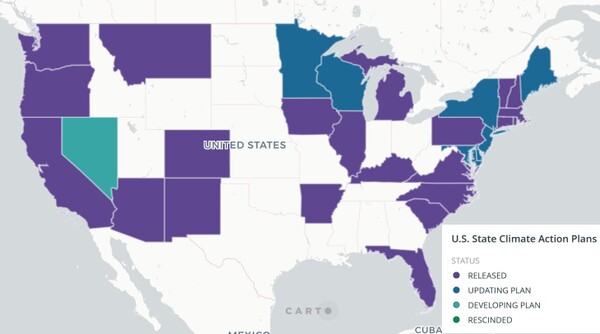Addressing Climate Change In Vermont

Vermont's Global Warming Solutions Act legislation was introduced in January before the COVID-19 crisis hit Vermont, but State Legislators were determined to pass the bill in response to increasing scientific data that shows immediate action to address climate change is essential. On September 17th, the legislation passed.
Vermont is one of many states taking action to put in place policies and regulations to address climate change in the face of inaction by the Federal Government.
 Source: https://www.c2es.org/content/state-climate-policy/
Source: https://www.c2es.org/content/state-climate-policy/
But Vermont is not new to this initiative; Act 250, Vermont’s land use and development law, was enacted in 1970 and established the Vermont Environmental Board. As a result of this legislation, every development and subdivision application is evaluated using detailed standards referred to as the 10 Criteria. According to the State of Vermont, “The 10 Criteria focus on projected impacts on air and water quality, water supplies, traffic, local schools and services, municipal costs, historic and natural resources, including scenic beauty, impacts of growth, and municipal and regional plans.”
In 2012 Vermont introduced its Universal Recycling Law, and just this year, put in place a composting mandate and a ban on plastic bags. In addition to legislative action to curb the use of fossil fuels and lower Vermont’s overall negative impact on the environment, many nonprofit organizations and initiatives have been working toward climate justice as well. Energy Independent Vermont is a growing coalition of environmental organizations dedicated to addressing climate change in Vermont.
This story was featured in our monthly newsletter. To get stories like this delivered directly to your inbox each month, click here to sign up!


